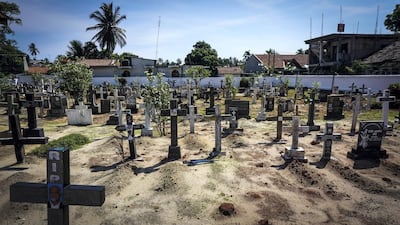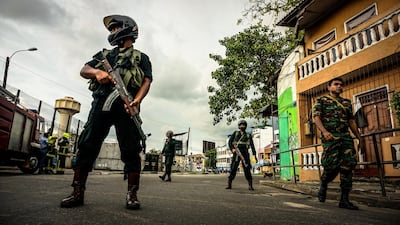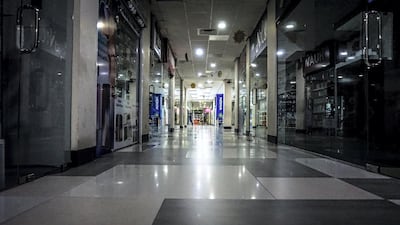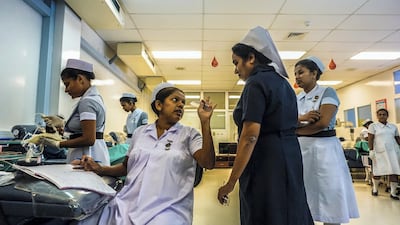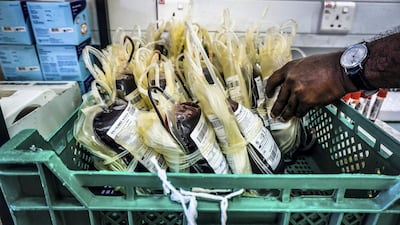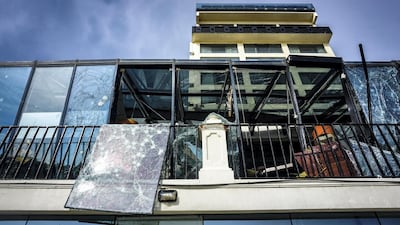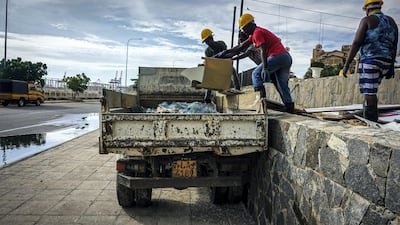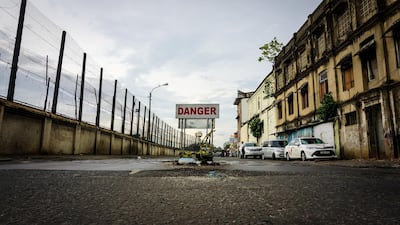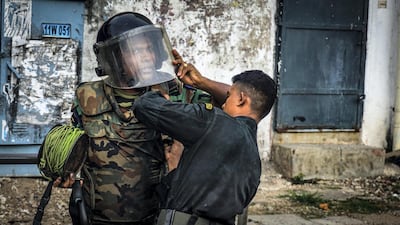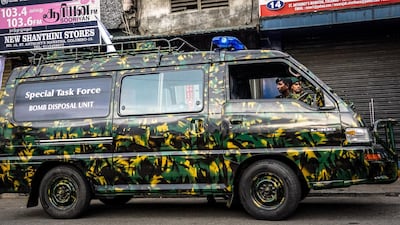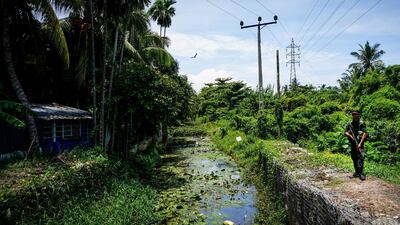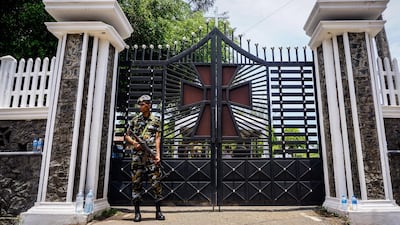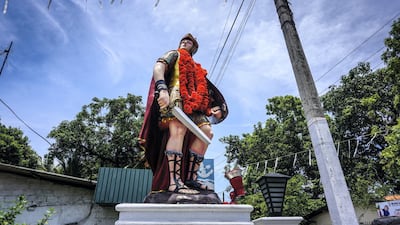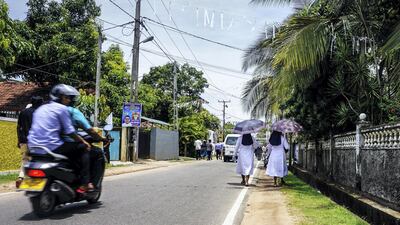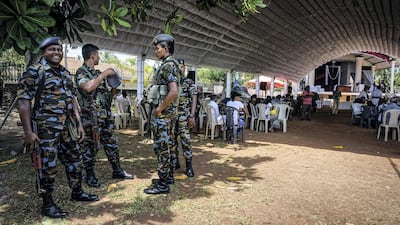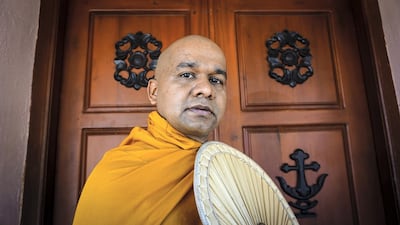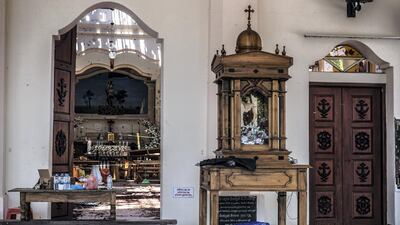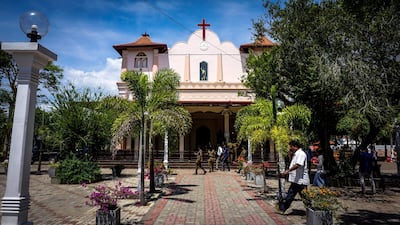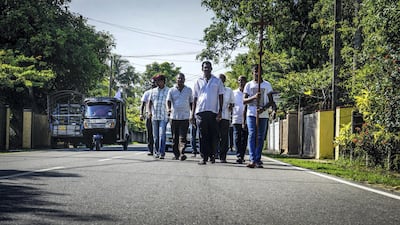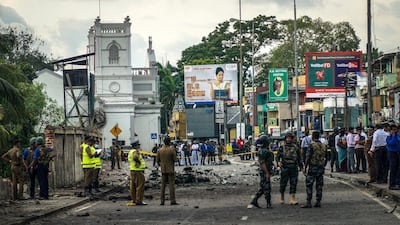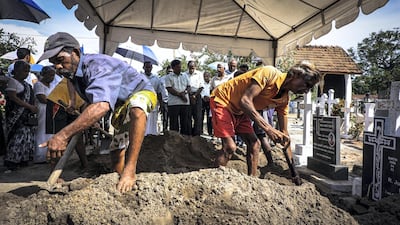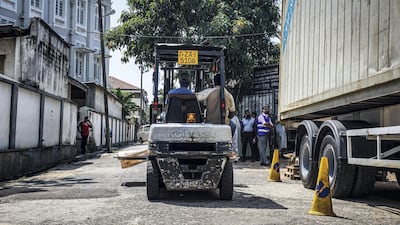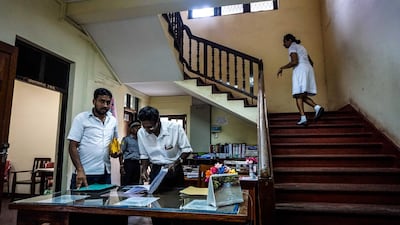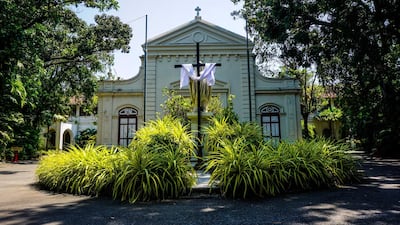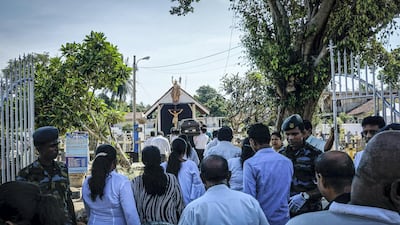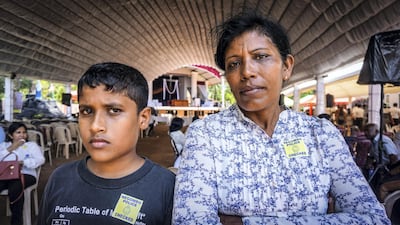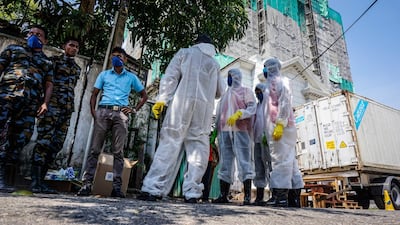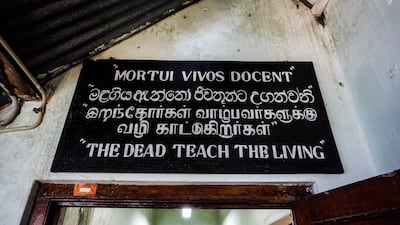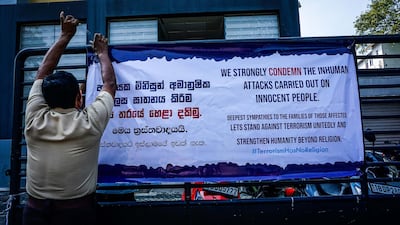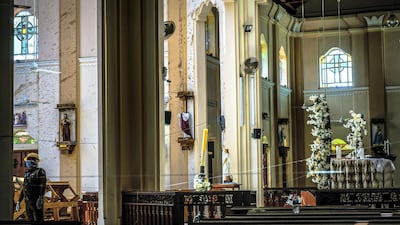In Colombo, the shock of Easter Sunday’s devastating attacks is still being processed. The death toll may have been revised down, but the suffering of the injured and the bereaved – and the sense of bewilderment that these callous and calculated bombings could have happened here – remains palpable.
Sudesh Kolonne lost his wife, Manik, and 10-year-old daughter, Alexendria, in the attacks. They were buried in a private ceremony on Tuesday. "We had a really good family. Especially my daughter," the grief-stricken father told us. "[It's an] unbelievable loss. My family's gone."
Palpable too is the sense of fear: there have been bomb threats here on a daily basis since last weekend, as well as raids and controlled explosions carried out by police. Our crew was close to one of these blasts this week, and its sheer force shook buildings and sent people running. Authorities say that the vehicle was full of explosives. Too close for comfort. On Friday, police raids in the east of the country culminated in a shoot-out as well as the seizure of an enormous cache of bomb-making equipment and ISIS uniforms.
The Catholic Church has announced a suspension of its services at least until Monday because of security threats. Last week, police warnings of a potential threat forced the clergy to curtail a planned memorial service at St Sebastian's Church, where one of the attacks took place, to protect the hundreds of mourners. We have heard reports of Muslims feeling harassed and the country’s minister of Muslim Religious Affairs advised people to avoid attending Friday prayers. Rather, the community has been called upon to remain at home and pray for their Christian compatriots.
For their part, leaders of the Christian community have also been urging their grieving and frightened people not to lash out in revenge. "At the moment, our people are very sad and very emotional, and we have to maintain peace," Father Nishantha Cooray told us outside St Sebastian's Church. "Certain people can create certain problems, and we have to be very careful ... we cannot harm or persecute or attack any person."
The dignity of those families whose lives have been forever damaged by senseless violence has been extraordinarily impressive. They bury their dead and, as instructed by their priests, quickly and obediently move on, for fear the funeral gatherings could be targeted by more madmen. It is hard to imagine living with the violent loss some of these people have just endured.
But, amid all of this, there is something else building: a growing sense of incredulity and outrage at the failings of the Sri Lankan government and its security forces.
We spoke to the Prime Minister, Ranil Wickremesinghe, who acknowledged a complete failure of communication. It is a breakdown that was both catastrophic and, apparently, systemic – there were warnings not only from different sectors of Sri Lankan society, but also from Indian intelligence.
Something even more extraordinary emerged from our interview, however. Not only were the suspected suicide bombers from wealthy, educated, even elite backgrounds, they were also being monitored by intelligence forces who were looking for people with connections to ISIS. They were left to carry out last Sunday’s deadly attacks because, the prime minister told us, the intelligence services did not have sufficient evidence to take them in.
In fact, we also learned from one top government official that one of the suicide bombers, who attacked the Cinnamon Hotel in Colombo, was detained in January after police raided a suspected training camp and found 100 kilograms of explosives.
The situation remains fluid. The prime minister admitted that there may well still be terrorists at large, and that sleeper cells could be preparing further attacks. "Police and security forces are rounding up those involved, but they're also rounding up the sleepers, those used on second and third rounds [of attacks]”, he told us. He also said that authorities “fear there is a foreign link” to the attackers, and that Sri Lanka has “asked for help to trace it”.
Meanwhile, Sri Lanka’s president, who has publicly feuded with the prime minister, said that police were looking for as many as 140 people believed to have links to Islamic terrorism following the attacks.
After the revelations of recent days, Sri Lankans’ faith in their leaders has been shaken to its core. Mr Kolonne is unequivocal: "This is murder. Our politicians represent us. It is their fault. They are the ones responsible for this."
The nightmare is far from over for this traumatised country.
Ivan Watson is Senior International Correspondent at CNN
